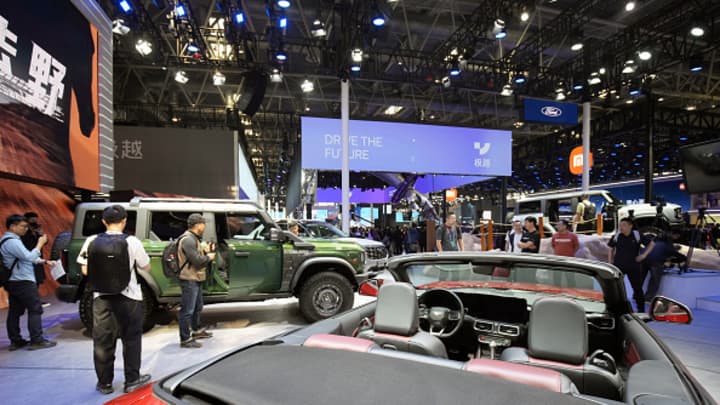- Tencent unveils a groundbreaking smart mobility solution at China’s top auto show, leveraging its large language model (LLM).
- Focuses on automotive software, diverging from Xiaomi’s path of car manufacturing.
- Partnerships with major auto groups like Changan Automobile and GAC Group highlight Tencent’s industry-wide impact.
- Tencent Cloud facilitates global expansion, aiding GAC Aion New Energy Automobile in Thailand.
- Release of a smart cockpit solution targets international markets, streamlining localization for Chinese automakers.
- Over 100 automotive and mobility companies benefit from Tencent’s cloud services, with 30+ international adopters.
Main AI News:
In a groundbreaking move showcased at China’s premier auto exhibition in Beijing, Tencent Holdings unveiled its cutting-edge smart mobility solution, leveraging its powerful large language model (LLM). Amidst the evolving landscape of the automotive industry, Tencent’s strategic focus on automotive software over manufacturing, in stark contrast to Xiaomi’s trajectory, marks a pivotal divergence in approach.
As reported by The Paper, Tencent’s emphasis lies in fostering robust digital infrastructure rather than direct vehicle production, positioning it uniquely apart from Xiaomi’s recent foray into car manufacturing. Zhong Xuedan, head of Tencent’s mobility business, underscored this distinction during the 2024 Beijing International Automotive Exhibition. Xiaomi’s recent debut of its SU7 model has intensified competition, notably challenging established players like Tesla and BYD.
Reiterating Tencent’s steadfast stance, Zhong emphasized the company’s commitment to refrain from vehicle production while actively encouraging new entrants within the industry. Instead, Tencent’s focus remains on empowering automotive stakeholders with transformative solutions.
Central to Tencent’s innovation is its latest mobility solution powered by Hunyuan LLM, poised to revolutionize research and development, manufacturing, and customer service within the automotive sector. Collaborations with prominent auto groups such as Changan Automobile, GAC Group, FAW Toyota Motor, and Voyah, backed by Dongfeng Motor, underscore Tencent’s industry-wide impact.
Beyond domestic endeavors, Tencent’s global footprint extends through initiatives like assisting GAC Aion New Energy Automobile in Thailand, where digital infrastructure deployment facilitated rapid mass production of connected cars within a mere three-month timeframe. Shen Pei, Tencent Intelligent Mobility’s general manager of strategy, highlighted the pivotal role of Tencent Cloud in enabling such transformative ventures.
Furthermore, Tencent’s release of a smart cockpit solution tailored for international markets underscores its commitment to facilitating seamless localization for Chinese automakers. This innovative product streamlines the development of localized cockpit ecosystems, enhancing efficiency and cost-effectiveness for global expansion.
With a track record of providing cloud services to over 100 automotive and mobility companies, including 30+ international adopters, Tencent’s influence continues to reverberate across the globe. By year’s end, an estimated 15 million vehicles are slated to integrate Tencent’s intelligent solutions, reaffirming its status as a trailblazer in shaping the future of mobility.
Conclusion:
Tencent’s strategic emphasis on software-driven innovation, showcased through its smart mobility solution, signals a transformative shift within the automotive industry. By prioritizing digital infrastructure over vehicle production, Tencent is poised to redefine industry standards, fostering global collaborations and accelerating the pace of innovation. This underscores the increasing importance of software and digitalization in shaping the future of mobility, with Tencent positioned at the forefront of this evolution.

